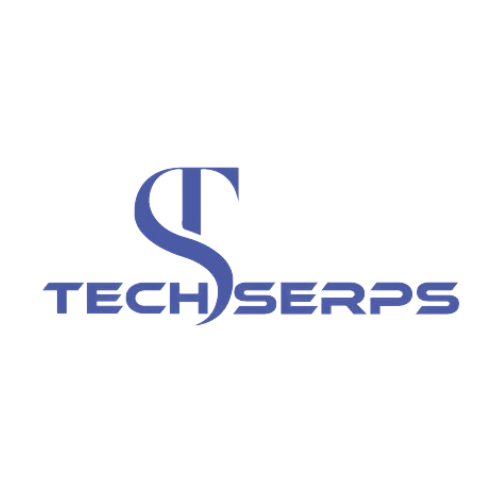The rapid advancement of Artificial General Intelligence (AGI) is transforming industries worldwide. Unlike narrow AI, which focuses on specific tasks, AGI aims to replicate human-like cognitive abilities, enabling systems to solve a wide range of problems. As AGI technology continues to evolve, the demand for skilled professionals in this field is skyrocketing. This article highlights the top Artificial General Intelligence jobs to watch in 2025, offering insights into each role and the skills required to thrive in this cutting-edge domain.
What is Artificial General Intelligence (AGI)?

Artificial General Intelligence (AGI) refers to a type of artificial intelligence that is capable of understanding, learning, and applying knowledge across a wide variety of tasks, much like a human. Unlike narrow AI, which is designed to perform specific tasks (like image recognition or playing chess), AGI aims to replicate human cognitive abilities, enabling machines to solve problems, reason, learn, and adapt across many different fields and environments.
The goal of AGI is to build a system that can independently understand complicated situations, make decisions, and engage with the world in a way that feels natural and adaptable, much like a human would. For example, an AGI system might be able to switch from diagnosing medical conditions to writing a novel or playing a musical instrument—tasks that require different types of knowledge and skills.
AGI’s Impact on the Workforce
AGI has the potential to transform entire industries, including healthcare, finance, and many others. As AGI systems evolve, they will not only augment human capabilities but also create new opportunities and challenges for the workforce. The rise of AGI will reshape the job market, creating roles that didn’t exist before and demanding a new breed of talent.
1. AGI Research Scientist

AGI Research Scientists are at the forefront of AGI development. They design and develop innovative models and frameworks to advance AGI capabilities. Their work involves conducting experiments, simulations, and collaborating with interdisciplinary teams to test AGI hypotheses and improve existing systems.
Skills Required
- Expertise in AI, machine learning, and cognitive science.
- Proficiency in programming languages like Python, TensorFlow, and PyTorch.
- Strong problem-solving and critical-thinking skills.
Job Outlook in 2025
As AGI technology advances, the demand for AGI Research Scientists will soar. Top tech companies and research institutions are investing heavily in AGI, seeking highly skilled scientists to lead the charge in developing groundbreaking solutions.
2. AGI Software Engineer

AGI Software Engineers are responsible for implementing AGI algorithms into real-world applications. They work to ensure scalability, efficiency, and robustness of AGI systems, often collaborating with research scientists to transform theoretical models into functioning products.
Skills Required
- Proficiency in programming languages like C++, Java, and Python.
- Knowledge of AGI frameworks and cloud computing.
- Strong troubleshooting and system optimization abilities.
Job Outlook in 2025
As AGI systems become more practical and widely adopted, demand for AGI Software Engineers will increase. Many positions will be available in AGI-focused startups and established tech companies looking to bridge the gap between research and product development.
3. AGI Ethics and Policy Specialist

With the rise of AGI comes significant ethical and policy challenges. AGI Ethics and Policy Specialists work to address these concerns by developing frameworks for the responsible deployment of AGI technologies. They collaborate with governments, tech companies, and society to ensure AGI is used ethically.
Skills Required
- Strong background in ethics, law, and technology.
- Knowledge of AGI safety, privacy, and regulatory issues.
- Excellent communication and policy advocacy skills.
Job Outlook in 2025
As AGI systems become more integrated into society, the need for Ethics and Policy Specialists will grow. Governments and organizations are increasingly focused on ensuring that AGI technologies are developed and used responsibly.
4. AGI Systems Architect

AGI Systems Architects are responsible for designing the infrastructure of AGI systems. They ensure that AGI systems can perform complex, multi-domain tasks by integrating hardware, software, and machine learning models into a unified system.
Skills Required
- Expertise in system architecture and neural networks.
- In-depth knowledge of AGI theory and hardware-software integration.
- Strong project management and leadership skills.
Job Outlook in 2025
Companies investing in AGI technologies will require experienced Systems Architects to help scale and optimize their AGI systems. This role is crucial as AGI systems become more advanced and widespread.
5. AGI Trainer / Cognitive Model Developer
AGI Trainers and Cognitive Model Developers focus on teaching AGI systems how to learn and adapt. They develop training frameworks and algorithms that enable AGI to understand and process diverse data, simulating human-like cognition and reasoning.
Skills Required
- Proficiency in machine learning, reinforcement learning, and cognitive modeling.
- Ability to handle large datasets and complex algorithms.
- Collaborative skills to work with research teams.
Job Outlook in 2025
As AGI evolves to tackle more dynamic tasks, demand for specialized Trainers will grow. These professionals will play a key role in developing AGI systems that can learn across various domains without needing constant retraining.
6. AGI Safety Engineer
AGI Safety Engineers focus on ensuring AGI systems operate safely and do not cause unintended harm. They develop protocols, fail-safes, and shutdown systems to prevent errors or mishaps in AGI interactions with the real world.
Skills Required
- Strong background in AI safety and control theory.
- Knowledge of human-AI interaction safety.
- Experience in system modeling and testing.
Job Outlook in 2025
As AGI systems become more autonomous, the need for Safety Engineers will grow. This role will be crucial in ensuring the safe deployment of AGI across industries and sectors.
7. AGI User Experience (UX) Designer

AGI UX Designers are responsible for designing user-friendly interfaces for AGI systems. They ensure that AGI technology is accessible and meets the needs of various stakeholders, from businesses to consumers.
Skills Required
- Expertise in UX principles and human-computer interaction.
- Experience designing AI-powered tools and interfaces.
- Collaboration skills to work alongside AGI engineers and product teams.
Job Outlook in 2025
As AGI systems integrate into everyday applications, demand for AGI-focused UX Designers will rise. These designers will play a critical role in making AGI systems intuitive and accessible for users.
8. AGI Data Scientist
AGI Data Scientists are responsible for collecting, processing, and analyzing data to train AGI systems. They work to improve the efficiency and performance of AGI models by leveraging large datasets and advanced analytical techniques.
Skills Required
- Expertise in data analysis, machine learning, and statistics.
- Proficiency in data science tools like Python, R, and SQL.
- Knowledge of AGI-specific data challenges.
Job Outlook in 2025
As AGI systems require vast amounts of data to function effectively, data scientists with expertise in AGI-specific challenges will be in high demand across both traditional tech companies and AGI-focused startups.
9. AGI Business Development Manager
AGI Business Development Managers identify opportunities for the commercialization of AGI technologies. They work to build partnerships, expand market reach, and lead strategic planning for AGI ventures.
Skills Required
- Strong business acumen and strategic thinking.
- Understanding of AGI technologies and their business applications.
- Excellent negotiation and relationship-building skills.
Job Outlook in 2025
As AGI technologies continue to evolve, businesses will need professionals who can drive the commercialization and adoption of AGI products and services. This role offers opportunities across various industries, from healthcare to autonomous systems.
Conclusion
The demand for Artificial General Intelligence jobs is set to grow exponentially in 2025 and beyond. As AGI continues to transform industries and reshape the workforce, professionals in these roles will play a critical part in shaping the future of intelligent systems. Whether you’re interested in research, software development, ethics, or business strategy, the AGI field offers exciting and diverse career opportunities. Stay informed, continue to learn, and explore the emerging roles in this groundbreaking field.
FAQs
1. What is the difference between Artificial General Intelligence and Narrow AI?
Artificial General Intelligence (AGI) is designed to perform any intellectual task a human can do, while Narrow AI specializes in a specific task, such as facial recognition or language translation. AGI is more flexible and adaptive, while narrow AI is more task-specific.
2. How can I become an AGI Research Scientist?
To become an AGI Research Scientist, you typically need a strong background in AI, machine learning, cognitive science, and programming. A PhD in a related field is often preferred, along with experience in research and experimentation.
3. What are the job prospects for AGI professionals in 2025?
Job prospects for AGI professionals are highly promising in 2025. As more industries adopt AGI technologies, the demand for skilled experts will continue to rise, with opportunities in research, development, ethics, business strategy, and more.
4. Are there any ethical concerns associated with AGI?
Yes, AGI presents significant ethical challenges, such as ensuring its safe use, preventing bias, and managing its impact on employment and privacy. Ethics and policy specialists are crucial in addressing these concerns.
5. What skills do I need to work as an AGI Software Engineer?
To work as an AGI Software Engineer, you’ll need strong skills in programming languages (like Python, Java, C++), an understanding of AGI frameworks, and the ability to optimize and scale AGI systems effectively.



